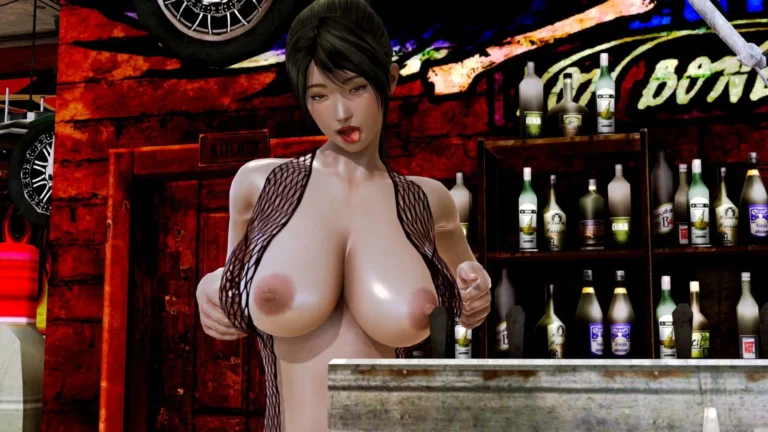
Corruption
Play Corruption
Corruption review
Explore the unique gameplay, story, and features of the Corruption game
Corruption is a distinctive adult-themed game developed by BolHeX that combines narrative-driven gameplay with interactive elements. Set in a controversial academy environment, the game challenges players to navigate complex scenarios while exploring the story of a government experiment. In this article, we’ll dive deep into Corruption’s gameplay mechanics, storyline, and development updates, offering practical tips and personal insights to enhance your experience.
Understanding Corruption: Gameplay and Storyline
Let me tell you about the first time I booted up Corruption. I was expecting just another visual novel, but within an hour, I was completely absorbed. This isn’t your typical dating sim; it’s a deep, strategic experience wrapped in a chilling premise. The Corruption game overview is simple on the surface but incredibly complex underneath. You find yourself at the heart of a secret government experiment game plot, tasked with observing and influencing the lives of students in a seemingly ordinary academy. 🎭
The genius of this interactive adult game is how it makes you complicit. You’re not just a passive observer; you’re the catalyst. The game masterfully blends choice-driven narrative with strategic resource management, creating a unique Corruption gameplay mechanics system that had me planning my next move even when I wasn’t playing. It’s this blend of personal connection and cold, calculated objective-setting that makes the experience so compelling and, at times, uncomfortably thought-provoking.
What is Corruption? Overview and Setting 🏫
At its core, the Corruption academy setting is the game’s brilliant stage. Imagine a prestigious, isolated boarding school, but behind its polished facade, it’s a meticulously designed laboratory. The students believe they’re there for an elite education, but you know the truth. You are a key part of a clandestine operation, a government experiment game plot aimed at studying social dynamics, influence, and moral decay under controlled conditions.
My initial impression of the academy was one of pristine order. The hallways were clean, the students were focused, and everything felt… normal. But that normality is the game’s greatest trick. As you delve deeper into this Corruption game overview, you realize that every interaction, every friendship, and every rivalry is a data point. Your presence is the variable that will tip the scales. The setting itself becomes a character—a gilded cage where you hold the key. 🔑
The Corruption storyline begins with you being given a mandate and a suite of tools. Your office is hidden away, a control room filled with monitors and reports on every student. From this vantage point, the entire academy is your chessboard. The feeling of power is immediate, but so is the weight of responsibility. The game constantly asks: How far will you go for the sake of the experiment?
Gameplay Mechanics and Player Objectives 🎮
The heart of Corruption lies in its sophisticated systems. This isn’t a click-through adventure; it’s a strategic simulation where your choices have cascading consequences. The Corruption gameplay mechanics are built on a few core pillars that work in harmony.
First, there’s the relationship management system. You don’t directly control a single character. Instead, you influence them. You can review dossiers, schedule events, and even introduce “variables” into their lives to see how they react. I remember carefully orchestrating a “chance” meeting between two specific students, only to watch their resulting rivalry spiral and affect the entire dormitory’s social structure. It was like conducting a symphony of chaos. 🎻
Second, you manage resources and intelligence. You have a limited pool of influence, surveillance access, and other assets. Deciding whether to spend your resources to boost one student’s confidence or to dig up compromising information on another is a constant strategic dilemma. Your Corruption player objectives are clear: fulfill the experiment’s protocols, gather the required data, and maintain the integrity of the project—all while managing the human elements that constantly threaten to derail your plans.
Here’s a breakdown of the main features and your role within them:
| Gameplay Feature | Player’s Role & Action |
|---|---|
| Character Influence | Indirectly guide student decisions and relationships through strategic interventions and resource allocation. |
| Experiment Protocols | Complete specific objectives handed down from your superiors, which often involve manipulating social scenarios or testing stress responses. |
| Information Network | Manage surveillance feeds, informants, and data analysis to uncover secrets and leverage them. |
| Morality System | Your choices are tracked, subtly altering the narrative’s tone and the endings available to you based on your ethical (or unethical) conduct. |
The beauty of these Corruption gameplay mechanics is that they force you to think several steps ahead. A small action in Week 1 can completely reshape the social landscape by Week 5. Achieving your Corruption player objectives requires a blend of empathy and cold detachment, a balance I found myself constantly struggling to maintain. It’s a brilliantly designed psychological playground. ♟️
Narrative Themes and Character Roles 🎭
The Corruption storyline is what elevates this from a simple management sim to a memorable narrative experience. The central theme is, unsurprisingly, corruption, but not in a simplistic, mustache-twirling way. The game explores how influence decays integrity, how power isolates, and how the pursuit of data can dehumanize both the observer and the observed.
You are not a hero. This was the hardest lesson for me to learn. In my first playthrough, I tried to be a benevolent guide, helping students overcome their problems. But the Corruption storyline is engineered to challenge that approach. The government experiment game plot demands results, and often, the path of least resistance involves manipulation and moral compromise. I found myself justifying increasingly questionable actions with the phrase, “It’s for the experiment.” The game holds up a mirror, and it’s not always a flattering reflection. 😶
The characters you interact with are not mere pawns. They are beautifully written with their own dreams, fears, and flaws. As an interactive adult game, it deals with mature themes of ambition, desire, and vulnerability. You might be tasked with breaking up a powerful friendship to study the fallout, or you might nurture a romance to observe its effects on academic performance. Each character’s arc is a thread in a larger tapestry, and you are the weaver—or the unraveler.
My Tip: Don’t reload a save every time something goes “wrong.” Some of the most powerful moments in the Corruption storyline come from unintended consequences and your attempts to manage the fallout. Embrace the chaos.
Because the game is in early development, this narrative depth is already impressive and promises even more. The current build allows you to see the skeleton of a truly epic tale, one where your understanding of “right” and “wrong” is constantly tested. The Corruption academy setting ceases to be just a location and becomes a state of mind—a microcosm of society where you have the power to shape destinies, for better or for worse. The lingering question the game leaves you with is profound: Who is truly being corrupted here, the subjects of the experiment, or you, the one running it? 🤔
Corruption offers a unique blend of narrative depth and interactive gameplay within a provocative setting. Despite being in early development, it provides players with engaging challenges and a compelling storyline centered on a government experiment in an academy. Whether you’re interested in the story, gameplay, or future updates, Corruption is a game that invites exploration and strategic thinking. Stay tuned for new patches and modding tools that will expand your experience further.

















